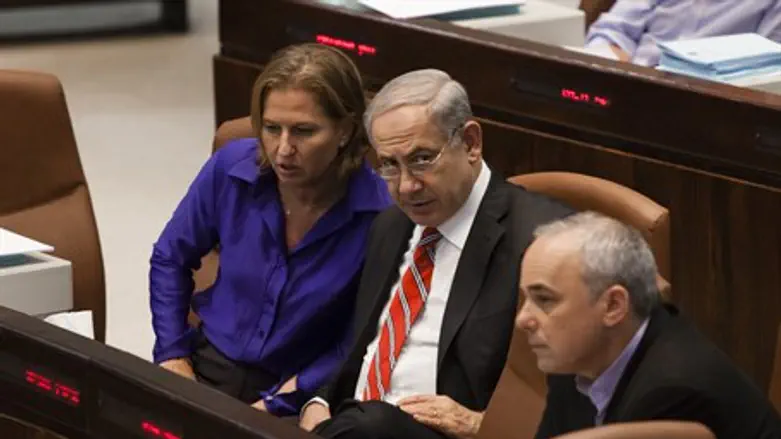
Israeli ministers were meeting on Tuesday to discuss a new law to deal with illegal immigrants from Africa, after the High Court shot down the so-called "Infiltrator Law", which allowed authorities to detain illegals indefinitely prior to deportation.
The discussion - between Prime Minister Binyamin Netanyahu, Justice Minister Tzipi Livni, outgoing Interior Minister Gidon Sa'ar and Public Security Minister Yitzhak Aharonovich - comes a day after a heated parliamentary debate which saw devastating criticism from right-wing lawmakers over the court ruling.
"The court's decision... does not enable the state to deal with the phenomenon of infiltration," outgoing Saar himself said on Monday, using a term for illegal migrants widely used by Israeli politicians.
According to the September 22 ruling, Israel can no longer detain illegal migrants for up to a year without trial, with the court ordering the closure of the Holot detention center within 90 days.
Around 2,000 African nationals are currently being held at the center located in the southern Negev desert.
A year ago, the High Court struck down a similar law allowing them to be held for up to three years without trial.
The repeated intervention by the courts preventing the government from effectively cracking down on the massive number of infiltrators in Israel has left residents of southern Tel Aviv livid. A significant proportion of illegals are concentrated in working-class neighborhoods there, leading to a massive rise in crime and making life for locals unbearable, they say. Activists staged a controversial demonstration against the High Court on Sunday night, branding it a "dictatorship" and accusing it of abandoning them for political purposes.
Government figures indicate there are some 48,000 Africans living illegally in Israel, most of them from Eritrea, and with several thousand more from conflict-torn Sudan.
A spokeswoman for Justice Minister Tzipi Livni said while new legislation was necessary, it would not contradict the court's ruling, which protected the Africans' fundamental rights.
"Israel has a fundamental right to prevent the infiltration of work migrants through its borders, yet at the same time they will be treated only within the limitations set out by the court," Maya Bengal told AFP prior to the meeting.